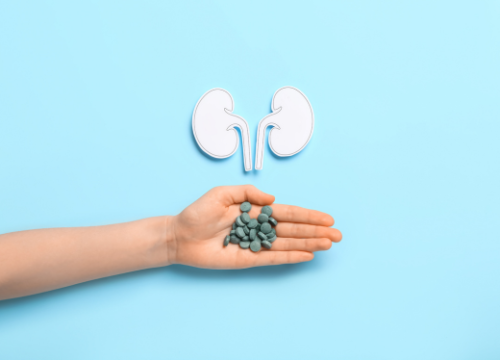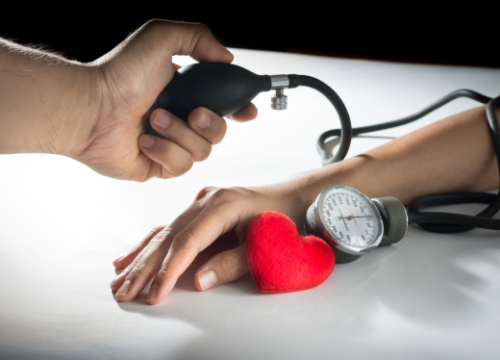You might have heard that drinking decaf coffee can lead to dehydration because it acts as a diuretic but is this really true? Does decaf coffee lower your body’s hydration level?
In this blog post, I’ll explore the facts and myths surrounding decaf coffee. I’ll also discuss how decaf coffee can fit into your daily routine without affecting your hydration levels. So let’s dive right in!
Is Decaffeinated Coffee a Diuretic?
No, decaf coffee is not a diuretic and here’s why: decaffeinated coffee still contains some caffeine but it’s significantly lower than regular coffee.
Because I am more aware of my coffee consumption due to my ulcers, I switch to decaffeinated coffee due to super low caffeine content in it (caffeine and acid can agitate and make ulcers worse!)
The amount of caffeine in decaf is typically around 1-3 milligrams per cup which is not enough cause any diuretic effects. Caffeine has been found to have a mild diuretic effect but it’s not strong enough to make a noticeable difference.
That being said, some studies have found that decaf can have diuretic effects but they are much weaker than those regular coffee. So while decaf may slightly increase your urine output, it won’t cause dehydration.
How Does A Diuretic Work?

Let’s start by understanding what a diuretic does to the body. A diuretic is a substance that increases the production of urine, resulting in more frequent trips to the restroom. Many natural substances boast diuretic properties, including caffeine, which is an active ingredient in regular coffee. But, does decaf coffee with its lower caffeine content act similarly?
The answer to the question is – maybe! While decaf coffee lacks the same caffeine hit as regular coffee, it still contains some amount of caffeine (about 2-5 mg per cup) along with other chemical compounds that could have a diuretic effect. However, the volume of caffeine in decaf coffee is also minimal causing much impact on your body’s liquid balance.
Furthermore, research studies have shown no significant difference in diuretic effects between caffeinated and decaffeinated coffee in people who drink coffee regularly. In fact, decaf coffee may have lower water loss compared to regular coffee since caffeine can drain significant portions of your bodily fluids.
It’s essential to note that the ‘diuretic’ properties of decaffeinaed coffee differ from individual to individual, depending on age, sex, and caffeine tolerance level. Factors such as body mass and metabolism rate also contribute to caffeine’s overall effect on the body. So, if you have a high tolerance for caffeine, cool: you might be able to handle more cups of decaf coffee without experiencing any diuretic effects.
If you are drinking a few cups of decaffeinated coffee a day, it won’t significantly impact your body’s hydration levels. However, if you are drinking loads of decaf and not replacing the lost fluids, it might become a problem. The critical factor to consider is balancing your coffee consumption with regular water intake to keep your hydration levels balanced.
For years, I didn’t understand that I was dehydrating my body by drinking coffee all day so please make sure to drink a few cups of glasses a day.
So, should you drink decaf coffee? Absolutely! Just make sure to keep an eye on your water consumption and balance your coffee intake with other fluids. It’s all about moderation and balance.
Is Decaffeinated Coffee A Laxative?
No, decaffeinated coffee is not a laxative. However, there are some reports suggesting that drinking too much decaf can lead to gastrointestinal distress and bloating.
Is Decaf Coffee Hydrating?
Yes, decaffeinated coffee is hydrating. While it does still contain some caffeine, the amount is too low to have a diuretic effect on your body. Additionally, research has also shown that caffeine can have a mild diuretic effect but as stated earlier, it’s not enough to make a noticeable difference.
So while drinking decaf coffee can increase your urine output, it won’t cause dehydration. On the contrary, decaf coffee could be beneficial in keeping your body hydrated. Just make sure to drink plenty of other fluids throughout the day and limit your consumption.
Is Decaf Coffee Okay for the Kidneys?

Yes, decaffeinated coffee is generally safe for the kidneys. Drinking up to four cups of dec coffee per day has not been shown to have any adverse effects on kidney health. However, it’s always best to speak with your healthcare provider if you have kidney-related issues or are taking medications that can affect your kidney function.
It’s important to be aware that some studies have linked high caffeine consumption with certain kidney diseases. Caffeine content in decaffeinated coffee is much lower than regular coffee but it’s still best to be mindful of your consumption especially for the long term.
How Long Does a Cup of Decaf Coffee Stay in Your System?
Decaffeinated coffee has a much shorter half-life than regular coffee. A study shows that the average half-life of decaf is between 2 and 4 hours, whereas caffeinated coffee can stay in your system for up to six hours. So if you are drinking decaffeinated coffee, it will have a much quicker effect on your body and leave your system faster.
Keep in mind that the half-life of decaffeinated coffee is still affected by factors such as age, metabolism rate, body mass, and caffeine tolerance level. So depending on individual circumstances, it could take a bit longer for the effects to wear off. Additionally, if you consume more than four cups of decaf in a day, it could stay in your system for longer as well.
Does Decaf Coffee Raise Blood Pressure?

No, decaffeinated coffee does not raise blood pressure. While caffeine can cause a temporary spike in your blood pressure levels, this effect isn’t seen with decaf. Research suggests that drinking up to four cups of decaffeinated coffee a day can actually help lower blood pressure in some cases.
That said, it’s important to note that everyone’s body is different. If you’re at risk for high blood pressure or are taking medications, speak with your doctor consuming decaffeinated coffee.’s always best to be of your consumption and stay within the recommended daily limits.
Conclusion
In conclusion, decaffeinated coffee does contain some amount of caffeine and other compounds that may act as a diuretic but it’s much weaker than consuming regular coffee.
However, it will only become a significant problem if you neglect your hydration needs while drinking loads of decaf coffee. Ultimately, the key takeaway is that moderation and balance are essential in everything. So savor your decaf cup, keep yourself hydrated, and enjoy your coffee break!